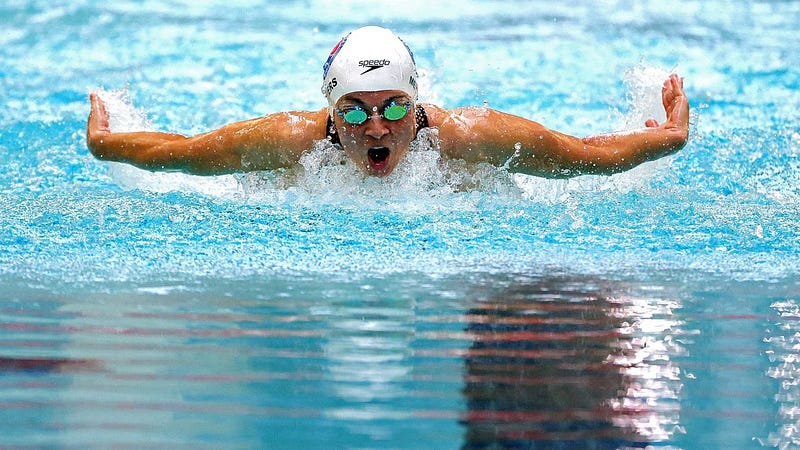

Similar to the other athletes competing in the Tokyo Olympics this year, Rebecca “Becca” Meyers has spent her life dedicated to her sport, so much that the people around her even call her “Becca the Swimmer Girl.” In an interview with the Washington Post, she refers to swimming as giving her “identity as a person.”

This isn’t Becca’s first opportunity to compete at the Paralympics. An accomplished athlete, she competed in the London Olympics in 2012 and again in the Rio Olympics in 2016, where she struggled to navigate the Olympic Village due to inaccessibility. She reported being unable to find the athlete's dining area and ultimately stopped eating.
Becca was born with Usher syndrome, which means that she experiences some degree of low vision and deafness. Without accessibility accommodations, she has trouble navigating some spaces. According to the National Institute on Deafness and Other Communication Disorders, there are three types of Usher syndrome. They impact hearing, vision, and balance differently (see graph below).

After experiencing the lack of accessibility to something as essential as nourishment, she vowed to never put herself through that experience again. Becca’s mother, Maria Meyers became her personal care assistant (PCA) and works in an official capacity to ensure Becca can navigate spaces effectively. They even obtained permission from the US Olympic & Paralympic Committee (USOPC) to travel with her PCA for international competitions.

However, due to COVID restrictions, the Tokyo Organising Committee of the Olympic and Paralympic restricted attendance to athletes and essential staff, therefore denying her the permission to bring her PCA to assist her in navigating the Olympic Village and Paralympic competing environment.

“I’ve had to make the gut-wrenching decision to withdraw from the Tokyo 2020 Paralympics,” Meyers said Tuesday in a statement posted on her Facebook page. “I’m angry, I’m disappointed, but most of all, I’m sad to not be representing my country.”
Although the guidelines imposed by the Tokyo Organising Committee of the Olympic and Paralympic were not explicitly targeting accessibility accommodations, this became the result and directly implicated Becca’s opportunity to compete this year. The discussion on accessibility and accommodations is critical, especially within the context of the coronavirus pandemic. When these kinds of restrictions are implemented, what kinds of barriers do they create for people with disabilities?
It’s disappointing that Becca Meyers won’t be able to compete, but it’s very commendable to see that Becca is sharing her story and fighting for herself and future generations of Paralympian athletes!
For more information about Ava’s accessibility solutions, click here


